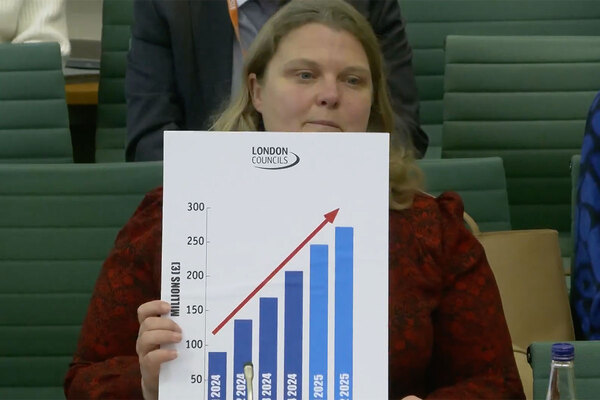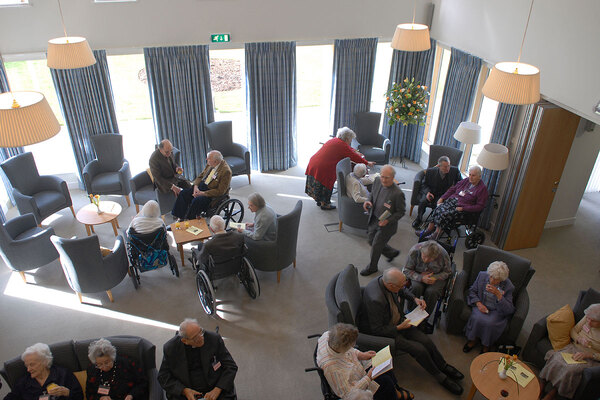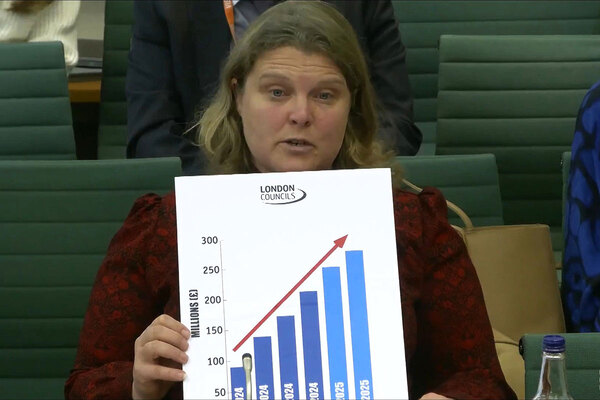How does increased migration affect housing providers?
How should social landlords respond to rising migration and government migration policy, asks John Perry, policy advisor at the Chartered Institute of Housing
Since the pandemic, migration to the UK has increased sharply. In the year to June 2023, 1.2 million people entered the country and fewer than half this number emigrated. Net long-term migration reached 672,000, far exceeding pre-pandemic levels.
While the consensus is that the recent peak is temporary, the long-term projection is that net migration will settle at around 315,000 annually. By 2036, the population is projected to have increased by 6.6 million, and most of this increase results from migration. The UK Housing Review 2024, published last month, looks at the impacts.
How does migration affect housing demand? This is best assessed by looking at projected household formation rates, but unfortunately these have not been updated since 2018. They do not directly reflect population growth, since a household can only ‘form’ when economic circumstances permit.
In a downturn, more households share and more single adults live in the parental home. When updated assessments are made, they will take account of economic prospects, as well as evidence from the 2021 Census and migration statistics.
Assessing migrants’ housing needs is also complicated by the fact that most are neither eligible for social housing nor able to buy. So, their immediate impact on the housing market is in the private rented sector. Many will have short-term needs because they are students or on temporary work permits. Workers on farms or in the hospitality sector may be housed by employers.
Working migrants (eg in the care sector) are often in low-paid jobs, yet some 2.6 million migrants are ineligible for benefits because they have ‘no recourse to public funds’ (NRPF). They face obstacles in finding private lettings, because they may have no deposit or track record of renting, and (in England) must prove their ‘right to rent’ by showing their immigration documents, facing discrimination as a result.
“It is not surprising that a Generation Rent survey showed that migrants in the private rented sector are more likely to endure bad conditions or find it difficult to get repairs done”
It is not surprising then that a Generation Rent survey showed that migrants in the private rented sector are more likely to endure bad conditions or find it difficult to get repairs done. A Children’s Society survey found 60% of migrants on NRPF were behind on their rent.
The most disadvantaged migrants are those who are ‘irregular’ or undocumented, estimated at anything between 400,000 and 1.3 million. They are vulnerable to exploitation via irregular jobs or insecure accommodation (eg ‘beds in sheds’ or sofa-surfing). Schemes exist to help them in many parts of the country (eg those affiliated with NACCOM, the No Accommodation Network), but are insufficient, given the scale of need.
Government policies are resulting in more migrants having unhealthy, precarious or no accommodation. Housing for asylum seekers – whether in hotels, remote army barracks or the Bibby Stockholm barge – verges on the intolerable and is very destabilising, leading to 23 suicides in four years. If given a positive asylum decision, increasing numbers end up sleeping rough. New allocation rules, if approved, will debar those who enter the UK irregularly from ever receiving a social housing allocation.
As the review points out, one positive take from recent government policy is the success of the Homes for Ukraine scheme. This helped to accommodate the 200,000 Ukrainians who have arrived in the past two years.
The Chartered Institute of Housing (CIH) has called for a longer-term hosting scheme, with similar financial incentives, as a way of providing accommodation for asylum seekers and refugees, at much lower cost and offering much better conditions than options such as the Bibby Stockholm.
“Housing for asylum seekers – whether in hotels, remote army barracks or the Bibby Stockholm barge – verges on the intolerable and is very destabilising, leading to 23 suicides in four years”
Faced with complex needs as well as constraints on what they can do, how can social landlords respond? One way is for staff who are providing advice, dealing with homelessness or allocating housing to be fully aware of entitlements based on immigration status, which are set out in detail on the CIH’s housing rights website.
Another is to specifically provide housing for refugees or to encourage hosting schemes, as many providers already do, such as several members of the PlaceShapers network, featured here. Some housing associations (like Soha and Broadland) provide rent-free properties for charities that house those who would otherwise be destitute.
Migration trends, international crises such as those in Ukraine and Afghanistan and the government’s ‘hostile environment’ for migrants all mean that their housing needs will only increase. While the real answer is to provide many more social rented homes, the obstacles that prevent such investment mean it is even more important to make creative use of the assets we already have.
The UK Housing Review is available to purchase via the CIH website at www.cih.org/bookshop. CIH members receive it free of charge as a member benefit.












